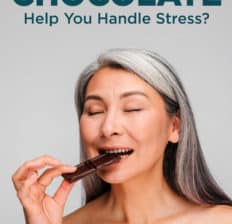This Dr. Axe content is medically reviewed or fact checked to ensure factually accurate information.
With strict editorial sourcing guidelines, we only link to academic research institutions, reputable media sites and, when research is available, medically peer-reviewed studies. Note that the numbers in parentheses (1, 2, etc.) are clickable links to these studies.
The information in our articles is NOT intended to replace a one-on-one relationship with a qualified health care professional and is not intended as medical advice.
This article is based on scientific evidence, written by experts and fact checked by our trained editorial staff. Note that the numbers in parentheses (1, 2, etc.) are clickable links to medically peer-reviewed studies.
Our team includes licensed nutritionists and dietitians, certified health education specialists, as well as certified strength and conditioning specialists, personal trainers and corrective exercise specialists. Our team aims to be not only thorough with its research, but also objective and unbiased.
The information in our articles is NOT intended to replace a one-on-one relationship with a qualified health care professional and is not intended as medical advice.
Dark Chocolate for Stress Starts in the Brain, New Study Shows
August 30, 2022

We often talk about the many health benefits of dark chocolate, perhaps because it’s so darn tasty. Its impressive antioxidant profile and impact on cardiovascular health are added, guilt-reducing bonuses.
Well, good news: A new preclinical study shows that dark chocolate may also help your brain adapt to chronic stress.
Study Findings: Dark Chocolate Could Boost Stress Response
A June 2022 study published in Nutritional Neuroscience analyzed the impact of dark chocolate dietary patterns on the hippocampal CA1 brain region in rats when exposed to chronic stress.
Thirty-five rats were placed into five groups: a control group, a stress group and three groups made up of different dark chocolate dietary patterns. Rats in the “compulsory diet” received only dark chocolate for stress, rats on the “optional diet” had an option of unlimited dark chocolate or chow, and those on the “restricted diet” received chow and only four grams of dark chocolate daily.
Based on their findings, researchers concluded that the compulsory and restricted dark chocolate dietary patterns reversed the harmful effects of chronic isolation stress on the brain nerve cells that impact learning and memory processing.
Results also show that food intake and body weight decreased significantly in all dark chocolate groups.
What It Means
This is the first study of its kind, testing the impact of dark chocolate for stress by way of affecting nerve cells in the brain. The next step is to research whether or not dark chocolate impacts humans similarly.
There is already evidence that dark chocolate benefits brain health. A 2020 study found that dark chocolate consumption improved verbal episodic memory compared to white chocolate. Researchers believe that this may be due to increased cerebral blood flow from cocoa flavonoids.
A parallel-group, randomized trial published in 2019 indicates that consuming dark chocolate enhances cognitive function performance compared to white chocolate.
There’s also research on how dark chocolate impacts perceived stress. A 2014 study showed that consuming 40 grams of dark or milk chocolate daily during a two-week period is an effective way to reduce perceived stress in females.
This latest study on dark chocolate suggests that the antioxidant-rich food may have several mechanisms for boosting brain health and reducing stress in humans, which is exactly why it’s considered a happy food.
Tips to Reduce Stress
Controlling stress is a major issue among adults. Although it’s a natural feeling that can improve motivation, dealing with it constantly can have significant effects on your overall health.
To boot, stress can impact your dietary and lifestyle choices, leading to a cycle of inflammation, low mood and trouble sleeping.
There are many natural stress relievers that can help ease anxiety, reduce inflammation, improve mental clarity and promote restful sleep. Here are some of the top tips for reducing stress:
- Daily exercise or physical activity (including walking outdoors, jogging, yoga, swimming, biking and lifting weights)
- A nutrient-rich diet that includes high-quality protein, healthy fats, complex carbohydrates, fruits, vegetables and herbs (avoid or cut back on processed, packaged and sugary foods, alcohol, and caffeine)
- Spending more time outdoors, taking casual walks, hiking or relaxing outside
- Keep a journal to track and work through emotions, helping you to identify triggers and common causes of stress
- Breathing exercises, stretching and massage
- Using adaptogenic herbs, such as ashwagandha, ginseng, cocoa and maca
- Engaging in daily spiritual prayer or meditation
Conclusion
- A June 2022 study published in Nutritional Neuroscience evaluated the impact of dark chocolate dietary patterns on the hippocampal CA1 brain region, which plays a role in memory and learning.
- Researchers found that rats on dark chocolate dietary patterns showed a reversal of the harmful effects of chronic isolation stress on the brain nerve cells.
- Study results also show that food intake and body weight decreased significantly among rats fed dark chocolate.
- Although human evidence is needed, this study suggests that dark chocolate plays a role in reducing the impact of chronic stress on the brain.




